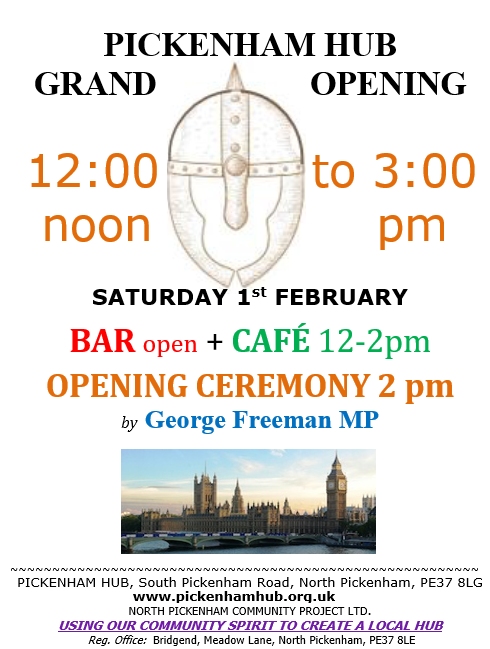George Freeman responds on behalf of the Roads Minister to a debate on all-lane running motorways.
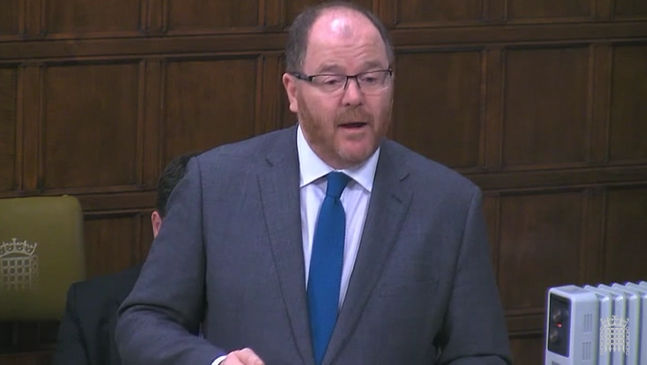
The Minister of State, Department for Transport (George Freeman)
It is a pleasure to serve under your chairmanship for the first time, Mr Paisley. I am standing in for the Roads Minister, Baroness Vere, who will be watching the debate closely, and I will meet her afterwards. Let me congratulate and thank the hon. Member for Rotherham (Sarah Champion) for raising this issue. I agree that it merits a bigger debate. The participation of colleagues across the House signals the strength of feeling.
Let me start by acknowledging the tragedy, pain and trauma suffered by the families of all those who have lost their lives on our roads—especially Jason Mercer, whose family are in the Gallery, and Dev Naran—and particularly, in the context of this debate, on our smart motorways. It is no good Ministers saying that all roads are safe; people need to feel safe and be safe. We need to ensure that safety remains our No. 1 priority. We accept there is a problem here. The Secretary of State is, as we speak, putting the finishing touches on a serious package of measures to tackle it. I cannot and will not pre-empt that, but I will deal with a number of points that were raised.
I would not be doing my job if I did not start by reminding everyone that safety is our No. 1 priority. Highways England’s objective in implementing smart motorways is to ensure that they are as safe as the pre-smart motorway network, which is already the safest bit of the road network, and ultimately safer. We are committed to developing an increasingly safe road network, and I am alarmed that the safety statistics showed a slight increase last year. I take the point my hon. Friend the Member for Chatham and Aylesford (Tracey Crouch) made about drilling down into that data, which I will raise with Baroness Vere.
Mr Betts
What the Minister has said is interesting, but given all he has heard, does he accept that smart motorways, or all-lane running—whichever he wants to call it—are as safe as building an extra lane and having a permanent hard shoulder?
George Freeman
That is one of the precise questions that the Secretary of State is looking at. I do not want to pre-empt that work, but I absolutely accept the hon. Gentleman’s reason for asking that important question.
Highways England is constantly monitoring, and it has introduced a number of measures. This is ongoing work. It is not something we think is done and dusted; it is live as we speak. The truth is that, for anyone involved, one accident is one too many. I want to ensure that no one ever dies in this way again, and that the legacy of the people who have died is that that sort of accident, and the situation in which it occurred, cannot happen again. That is why the Secretary of State announced an evidence stocktake soon after taking office. He has called in all the evidence and data, and he is looking at a package of measures to deal with this issue, which will be announced imminently. It would be sensible if, following the debate, we quickly reconvened the all-party group on road safety. Perhaps we might go further and create a taskforce for all colleagues who are interested in this issue, so we can listen to their concerns and ensure that that work is fed directly in.
I hope my hon. Friends and colleagues on the Opposition Benches understand that I cannot pre-empt the Secretary of State’s announcement, but let me make one or two key points in response to those that were raised. It is true that the principal rationale for smart motorways is to increase capacity, reduce congestion and reduce pollution. There are environmental benefits to ensuring that we maximise the use of existing motorways rather than building new motorway capacity, but there are real issues about awareness, information, the positioning of refuges, rescue, vehicle monitoring, and the safety of vehicles re-entering the highway. All those issues have to be got right, and that is why I am responding in the way I am.
Smart motorways have increased capacity. Since we introduced the scheme, more than 1 billion journeys have been made over the 250-mile network of smart motorways. I do not want people to think this is a very small patch of malfunctioning motorway; it is extensive, and over the last 15 years, millions of people have driven up smart motorways.
Sarah Champion
This debate is about all-lane running, not smart motorways. It actually is about a very small stretch. Please, Minister, do not just focus on smart motorways and how wonderful the M25 is. We get that. We are talking about all-lane running, which is where we do not have investment.
George Freeman
I understand. I am setting the context, because I think there is quite a lot of public misunderstanding about what smart motorways are. I am short of time and I am keen to get to the end of my speech if I can.
The conversion of the hard shoulder to a running lane is a key feature of capacity management, and we avoid having to build more motorways when we can increase the capacity of existing ones. I totally accept that there are real issues, which the hon. Lady raised, not least of which are refuge placement and ensuring that we have full CCTV coverage so we are able properly and quickly to monitor vehicles that are in trouble and ensure that they are dealt with properly. The scheme has been running since 2014. To the point made by my hon. Friend the Member for Chatham and Aylesford, there is a lot of data that we ought to be able to draw on, and we are drawing on it in this review.
It is worth reflecting that the hard shoulder on a traditional motorway has never been deemed a safe place to stop. One of the problems is that, traditionally, people have seen the rescue telephones and thought of it as a safe place to stop, find facilities and make a phone call. It is not and never has been. One of the things we have struck is a misunderstanding that it is a good place to pull over. It is not. Let me repeat that the hard lane has never been that and is never that. In contrast, there have been no collisions in refuges resulting in fatalities.
In the original pilot on the M42 in 2006, refuges were set very close together, at approximately 500 metres apart. Based on operational insights, further performance data and ongoing monitoring, Highways England moved that to 1,000 metres on all other dynamic hard shoulder running schemes, and then to 2,500 metres on all-lane running schemes. That is one of the things the Secretary of State is looking at.
Highways England undertook a review of operational all-lane running schemes and found no consistent correlation between the number of live-lane stops and the spacing of emergency areas, but I take the point my hon. Friend made about drilling down into that data, and I will ensure that that is done. We and Highways England know that motorists not only need to be safe but need to feel safe and need to know what to do when they are in the dangerous situation of a breakdown or a collision. We need to ensure that everyone has that information properly.
The specification for the maximum spacing of emergency areas on new schemes has been reduced from 1.5 miles, which is about 90 seconds at 60 mph and equivalent to the spacing of lay-bys on sections of A road, to 1 mile, which is about 60 seconds at 60 mph. However, again, we need to look at the data; on particular sections, given the geography of the road area, the spacing might need to be different. Highways England will also install a number of additional emergency refuge areas in locations with the greatest spacing. We need to look at whether there are particular blackspots where we need more refuges.
All emergency areas are fitted with orange surfacing to make them more visible, and better advance signing will give motorists more information about how far away the next one is. I want to go further and ask whether we could use digital technology, which many drivers use for satellite navigation, to ensure that every driver knows when they are in one of these areas, where the refuge is and what they should do. Technology can help us ensure that we avoid the sort of tragedies we have seen.
Identifying a broken-down vehicle is key, and I know that is something my hon. Friend the Member for Chatham and Aylesford has raised. If a driver is unable to reach a place of safety, the regional traffic control centre can and should use the overhead electronic signals to close lanes, display warning messages and slow down approaching traffic, as well as to create an access lane for the emergency services. To reduce response times in setting those signals, Highways England has installed a stopped vehicle detection system on two sections of the M25 and will shortly install one on part of the M3. Again, however, if that is the prerequisite, we need to put it everywhere and ensure that it works properly. Highways England is designing it into all-lane running smart motorway schemes that are currently scheduled, and it is exploring how to provide the same benefits on all existing all-lane running smart motorways. I say that not to suggest that it is an adequate response to the points that were made, but simply to highlight the work that is going on.
Lilian Greenwood
The Minister will know that when Highways England appeared at the Transport Committee, it confirmed that stopped vehicle detection systems are only 90% effective. What is in place to deal with the other 10%?
George Freeman
That is an excellent point, and it is one of the issues the Secretary of State will be looking at in his work.
In the remaining seconds, I want to touch on reports that the AA has said it will not let its patrols stop in live lanes. That is concerning, because we need the support of all vehicle rescue operators. It is worth saying they are never expected to work in a live lane on any motorway unless the scene has been made safe by police officers. That has always been the situation. Highways England has developed guidance on safe recovery with the recovery industry, and it has put in place a whole series of measures, such as electronic signs, variable speed limits and red X signals. Regional control centres and on-road traffic officers can now support vehicles leaving an emergency area. Again, I am not suggesting that is adequate; more needs to be done to ensure that this is working properly.
Red X lane enforcement is long standing. It has been in use since the system was introduced in 2006, and Highways England, in partnership with the police, has issued more than 180,000 formal warning letters to drivers identified as having wrongly used the hard shoulder at a number of smart motorway locations. That number must come down. The aim should be to ensure that nobody drives in the wrong lane at the wrong time, rather than to issue letters to warn them. We need faster progress on that. We have brought in legislation to allow automated detection of red X offences using camera equipment and to enable the police to prosecute, but, again, that should be the last line and something we hope never to have to do. We need to ensure that those incidents do not happen. There have been major public information campaigns, which I do not have time to list in detail.
Let me conclude by saying, in the spirit of the debate, that I am keen to work with the Roads Minister, Baroness Vere, to follow up with colleagues on both sides of the House and look at whether we might set up a taskforce to ensure that their insights can be fed in, and to work with the Secretary of State to ensure that the package he announces is adequate for all of us who use the motorways and represent drivers. I want to ensure that the deaths of Jason, Dev and the others were not in vain, and that their legacy is real improvement so everyone knows these routes are safe.
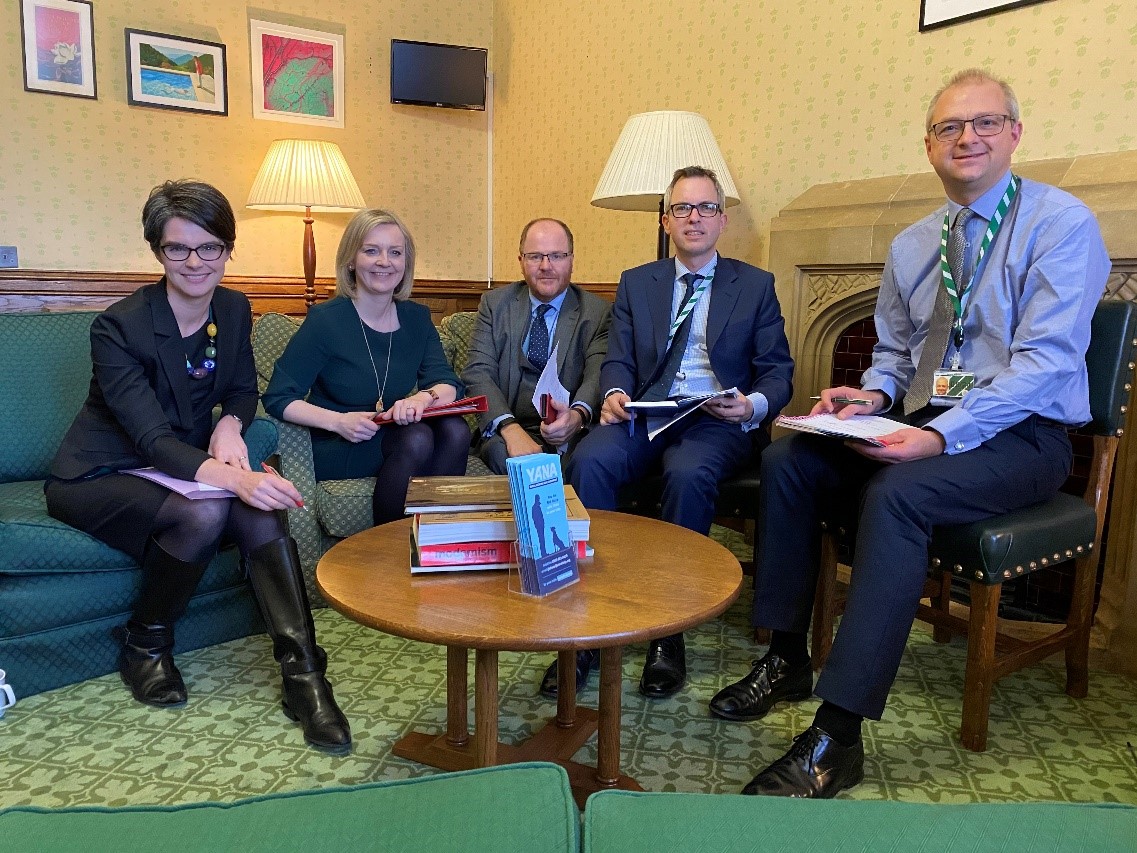
I was pleased to meet with fellow Norfolk MPs last week to discuss a range of Norfolk-specific issues, including with two new Norfolk Conservative MPs – James Wild and Jerome Mayhew.
A number of issues were discussed, including: health and social care, education, digital connectivity, access to GP and mental health services, amongst others.
The new Government has rightly made improving connectivity to help “level up” areas left behind a top priority. That isn’t just a problem in the North: Norfolk has many “left behind” areas and improving our bus, train, road and digital connectivity is vital to public services and widening access to economic opportunities in our marginalised communities. I was therefore pleased we discussed important infrastructure and transport issues such as the A47, bus provision, Ely rail junction, Norwich in Ninety and half hourly train services.
Norfolk’s Conservative MPs have a good track-record of working together to achieve for Norfolk, and I am delighted the group has now risen to 8 following the gain by Duncan Baker MP in North Norfolk.
As a group, we are keen to ensure that the county has a prominent place at the table in any future government spending rounds to ensure that the region is not left behind, and to champion all that is great in Norfolk.
I look forward to working with the group going forward to ensure that Norfolk continues to thrive!
You can read the article in the EDP here.
There were a lot of entries of an extremely high standard to the 2019 Mid Norfolk Parliamentary Christmas Card Design competition, and I am especially delighted to announce that the winner was Ella, aged 8 of Wicklewood Primary School, with her design: ‘A Merry Norfolk Christmas’.
The standard of entries reflects the hard work put in by all pupils and, of course, the inspiration of their teachers across our area.
As the winner, Ella’s entry was featured as the main image on my 2019 Christmas E-Card and will receive the prize of Afternoon Tea with me in Parliament, and a personal tour of the Palace of Westminster.
I also chose 3 highly commended entries who will each receive a £10 book token to be redeemed at Wymondham’s Kett’s Books.
You can view the winning design, ‘A Merry Norfolk Christmas’, and the highly commended entries below:
Winning Entry

Highly Commended

It is no secret that I have deep concerns about the high number of applications in our part of Norfolk – many of which are, often, highly inappropriate and on a scale that is unsustainable and out of keeping with the heritage and identity of our largely rural area, clearly breaching the sustainable development criteria set out in the National Planning Policy Framework and 2011 Localism Act.
That’s why I am pleased to hear that, on Monday, Breckland Council’s Planning Committee refused permission for the deferred application for 255 homes on land east of Yaxham Road/south of Dumpling Green in Dereham.
While I agree with the principle of ‘development’ (what society or civilisation has flourished without it?), I believe that any new development should be appropriate to the area in question – accompanied by the infrastructure and services necessary to support it. The answer isn’t to allow aggressive out of town developers to simply dump massive housing estates on rural communities like ours. We require a more local and organic approach to deliver vibrant villages and thriving towns – tailored to the needs of local people already living in them, and sufficiently ready to welcome those looking to join them. (It is for this reason that I set up The Norfolk Way back in 2007 – a not for profit campaign championing smaller pockets of local housing for local people, small businesses back in the countryside and better connectivity).
Due to serious concerns that this application threatened to undermine public trust in our planning system and would exacerbate Dereham’s pre-existing problems with traffic congestion, I wrote to Breckland Council last summer to support widespread local concerns about the proposals. (To read more about this, click to read my previous update here).
I am reassured that, having deferred the application at that time to allow for more work to be carried out, councillors on the Planning Committee have recognised that the basis for those concerns remain and how now decided therefore not to allow it to go ahead. (To read more about the decision, click here to see the recent Dereham Times article).
This all reaffirms the need for a proper strategic Dereham Town Plan and I remain committed to supporting Dereham Town Council, along with all the other groups involved, as they look to bring one about. As part of that, I am also determined to continue working with local councillors and agencies in order to try and bring about a proper solution to the terrible traffic problems that plague parts of the town – especially at the Tavern Lane/Yaxham Road Junction.
It was great to be back in Wymondham for another constituency Friday after a long week in Westminster last week.
A joy to hear the common sense of voters in Mid Norfolk going about their everyday lives: who want us to get on and deliver a sensible pro-jobs Brexit & One Nation Conservatives Government.
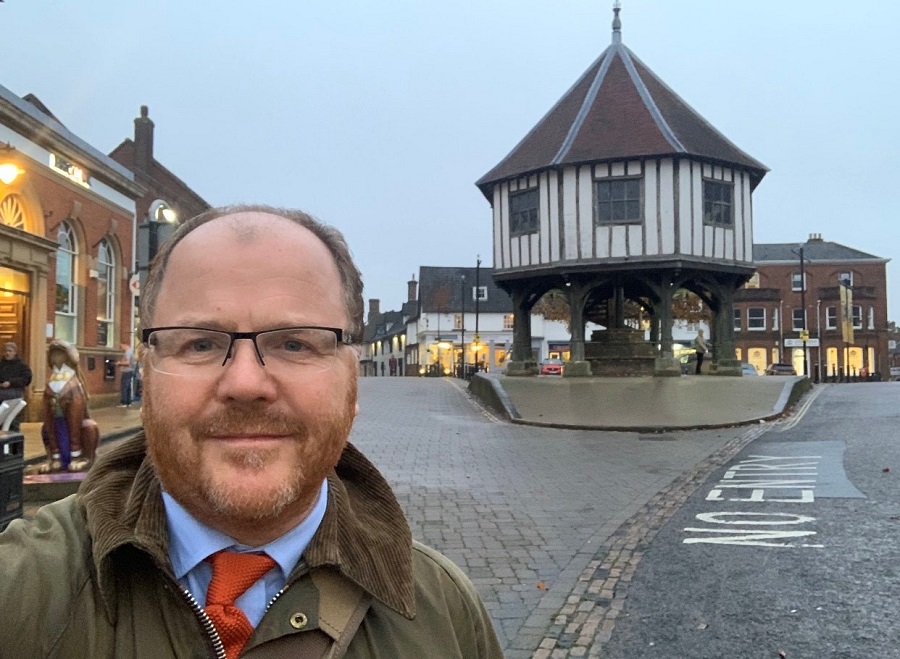
George Freeman responds to a debate on bus passes for women born in the 1950s who are affected by the pension changes.
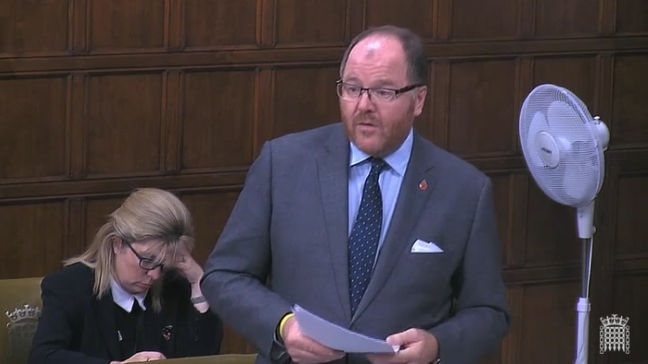
The Minister of State, Department for Transport (George Freeman)
Thank you, Sir Christopher, for the chance to serve under your chairmanship. I echo your justifiably warm comments about the hon. Member for Coventry South (Mr Cunningham). It is a pleasure for me to make my first appearance as the newly created Minister for the Future of Transport, but it is also a real pleasure to pay tribute to the hon. Gentleman. In my 10 years here, I have seen the quality, calibre and tenacity of the representation that he has given to the people of Coventry South. I am aware that this may be his last debate. He has given 50 years of public service, including as a city councillor leading the council and as an MP since 1992. Whoever returns in December, this House will miss the hon. Gentleman for his contributions.
My constituency is affected by the pension changes. It defies the stereotype of Norfolk as the playground for the golden Range Rovers from Chelsea to go to the coast. Mid Norfolk is a low-income, largely blue-collar, rural constituency. I well appreciate and understand the issues that the hon. Gentleman has raised, and the importance of concessionary fares on public transport and these pension reforms.
I want to set the scene by reminding everyone why these reforms were necessary. First, they reflected changes in average life expectancy. When the pension system was created, life expectancy was decades younger than today, when it is going up by about a year every decade. These are substantial changes to our workplaces and in the demography of our nation.
Changing the state pension age was a difficult but, in my view, necessary decision. It was necessary not least because we had to deal, in 2010, as a coalition Government, with the horrendous Budget deficit that we inherited. To remind those who are not familiar, the Government at the time were borrowing £1 of every £4 they were spending. Some very tough decisions had to be made. It is worth remembering that these changes were part of recognising some incredible and welcome changes in the workplace of modern Britain. Women now rightly enjoy—it is long overdue—the chance to fulfil careers based on equality in the workplace and to work long, healthy lives, and to enjoy the opportunities that have been dominated by men for too long. That is part of what the reforms were about. However, I totally accept, as I have with my constituents, that where there is a change or threshold in any benefit, concessionary travel or pension situation, there will be people who are caught at the margins or the cut-off point. That is what has happened in this case.
I would not be doing my job if I did not point out that women who reached the state pension age in 2016 will have received, on average, more state pension over their lifetime than women ever have before. Furthermore, if we had not equalised the state pension age, women would be expected to spend on average more than 40% of their adult lives in forced retirement. There are two sides to this coin.
On the suddenness of the change, although many women in my constituency were surprised in 2010-11—as I am sure they were in the hon. Gentleman’s—the changes have been coming. The Pensions Act 1995 included plans to increase the women’s state pension age from 60 to 65, to align with men. The Pensions Act 2011 moved the state pension age for both men and women to 66. As he signalled, the High Court ruled in favour of the Government in its judicial review ruling of 3 October.
Mr Jim Cunningham
I would need to check it out, but I understand that there may be an appeal on that ruling, so I do not think that the matter is finished.
George Freeman
There may well be an appeal, but I obviously cannot comment on it. I simply make the point that the appeal will be against the ruling in favour of the Government.
On concessionary travel, we all know that for many people the concessionary bus pass can be an absolute lifeline, providing access to work, public services, healthcare, education and, particularly in rural areas, to the very fabric of community and the fabric of active and healthy societies. That is why the Government continue to support concessionary bus travel to the tune of £1 billion a year through local authorities in the UK, to try and ensure that no older or disabled person in England is prevented from travelling by bus for reasons of cost alone. However, I accept that we must go further, and I will set out shortly what the Government will do.
Stephen Lloyd
As the Minister knows, one of the challenges with bus passes is that there is a bit of a postcode lottery: they vary between cities and rural areas. In the spirit of positivity that the Minister spoke about, will the Government make any proposals to ensure that people get the same level of bus pass across the piece, so that WASPI women in rural areas will not suffer more than they would if they lived in London?
George Freeman
The hon. Gentleman makes a very interesting point; will he drop me a line about it? As he knows, I am a champion for rural areas and tackling rural inequality, and I will be looking at what we need to do in our new bus package, which I will describe shortly, to ensure that rural areas do not suffer.
In April last year, we announced a change in the legislation to protect the concessionary travel scheme in its current form so that it can continue to provide free travel for eligible older and disabled people for years to come. I should point out that equalising the age difference between men and women removed the anomalous situation in which non-disabled citizens of working age received free bus passes.
To mitigate the effect of the state pension age changes on the people worst affected, Parliament has already legislated for a £1.1 billion compensation package, which reduced the proposed increase in state pension age for more than 450,000 of the hardest-hit men and women. That means that no woman will see her pension age change by more than 18 months relative to the 1995 Act timetable. I accept that that does not deal with all the issues that the hon. Member for Coventry South raised, but for me that is really important. Some of the constituents I have spoken to are among the most seriously affected, and the idea of the package is that it will help at least to substantially mitigate the impact on them.
In addition, the Government are committed to improving the outlook for older workers. We are helping many of the people who had planned to retire but now work, to get back into work, including by removing many of the barriers that they may face. To enable older people to work for longer, as many want to, we have reformed the legislation to remove the default retirement age, which means that people are no longer forced to retire at an arbitrary age. We have also extended the right to request flexible working to all with 26 weeks’ continuous employment, which means that people can propose and discuss a flexible working requirement to suit their needs.
Alongside those significant legislative reforms, we have been successfully challenging negative perceptions about older workers through a major programme, Fuller Working Lives, which is led by the Department for Work and Pensions. We have appointed Andy Briggs as the business champion for older workers, to spearhead the Government’s work to support employers in retaining, retraining and recruiting older workers, to actively promote the benefits of older workers to employers across England, and to influence them both strategically and with practical advice. I am not being pat when I point out that the hon. Member for Coventry South is a walking embodiment of the agility, impact and leadership that people can provide in their senior years. There are many people in this country who have a lot to give, in Parliament and in society, and we want to help and encourage them.
There is strong demand and competing claims for concessionary fares. There are many calls on the Government for extensions to the statutory concessionary bus travel scheme for important groups, including young people in search of work, jobseekers and carers, as well as those who are affected by the changes in the state pension age. Each of those groups may have a different and engaging case for access to cheaper travel, but if the Government are to protect the current scheme, which costs £1 billion a year, we must ensure that it is financially sustainable. With that in mind, I will shortly announce, as part of my reforms in my new role, a series of changes to the way in which we tackle demand-responsive bus travel in rural areas.
Concessionary travel legislation gives all local authorities in England the power to introduce local concessions in addition to their statutory obligations, so that authorities that have a particular problem can deal with it. I am delighted that that has happened in the west midlands, which includes the constituency of the hon. Member for Coventry South: the West Midlands Combined Authority, led by its excellent Mayor, Andy Street, has introduced a women’s concessionary travel scheme that gives free off-peak bus and tram travel to women who live in the west midlands and were born between March and November 1954. More than 9,000 women across the region are set to benefit. Lest anyone should think that I am being politically partial, let me say that a similar scheme has been put in place by Mayor Andy Burnham in Greater Manchester, and that schemes that offer free bus travel to residents aged 60 and over exist in London and Merseyside. Local leaders can, and in some cases do, put additional measures in place.
Luke Pollard
I am grateful that the Minister has set out the fact that that can happen, and that it is a good thing when it does. Has he considered carrying out a cost-benefit analysis, looking at the benefits to society from giving WASPI women the free bus pass that he so praises in the west midlands and in Manchester?
George Freeman
I am grateful for that excellent question. In my new role I am looking, not just at that issue, but at the costs and benefits of widening access to bus and public transport for people in areas where it can tackle disconnection and help to drive up productivity. In my constituency, and possibly in the hon. Gentleman’s, many communities are quite cut off and isolated from the very exciting areas that are creating jobs and have zero unemployment. Cambridge is 40 miles down the road from Mid Norfolk, but I have many constituents who cannot get there, so they cannot get those jobs. As part of my role, I am looking at the cost-benefit ratio for the Treasury of having better travel, better training and better skills.
The Government have committed to seriously transform bus services across the country for the first time in a generation. I therefore welcome, as I hope colleagues across the House will, the announcement of our £220 million package, “A better deal for bus users”. Whatever else one might think about politics in this country at the moment, I welcome the fact that we have a Mayor as Prime Minister—someone who not only gets buses, has designed them and paints them in his spare time, but deeply gets the importance of public transport and interconnected transport for modern connected places. That is, in no small part, why we are introducing our major bus reform, with £50 million to deliver Britain’s first all-electric-bus town or city; £30 million in extra bus funding, paid directly to local authorities to enable them to improve bus services and restore lost services; and £20 million to support demand-responsive services in rural and suburban areas.
On the point that the hon. Member for Plymouth, Sutton and Devonport (Luke Pollard) raised a moment ago, as Minister for the Future of Transport I am working actively on whether we can take a more intelligent place-based approach. When we look at a county—Norfolk, in my case—or a city, instead of asking how best to spend our money on subsidising bus services, we should ask a different question: “How best can we help the people in this area who need help to get to work or to get access to public services?” I am absolutely sure—indeed, I have seen it working—that by using digitalisation or simple telephone demand systems, we can make it easier for people to log on and signal where they need to go the next day, and we can ensure that we provide for a mixed economy. Whether it is for two or three people in a car-share, 10 people in a minivan, or 20 or 30 people on a bus, we can do much better in using technology to provide smarter public and community-based travel and support services.
I genuinely thank the hon. Member for Coventry South for raising this important matter, for the chance for us all, at the end of this Parliament, to signal that we need to get this right, and for allowing me to highlight what the Government are doing to get it right. As this Parliament winds up, I congratulate him on his very, very distinguished parliamentary career.

